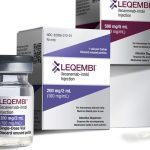Reduced Alzheimer’s Risk a Surprising Benefit of Vaccines Against Shingles & Pneumonia

Alzheimer’s disease presents a significant global burden, affecting approximately 50 million individuals worldwide, a number projected to triple by 2050 without substantial intervention. The disease not only profoundly impacts patients’ cognitive functions and behaviors but also places immense economic strains on healthcare systems, families, and societies. Regions like North America, Western Europe, and East Asia experience higher prevalence due to aging populations, while efforts in research, advocacy, and public health strategies aim to address challenges posed by the disease. Despite advancements in understanding its underlying mechanisms, effective treatments remain limited, emphasizing the urgent need for early diagnosis, improved interventions, and support for caregivers.
Available data indicates that Alzheimer’s disease has spurred a global public health concern with increasing prevalence and devastating consequences. With an estimated 50 million individuals affected and projections for a threefold rise by 2050, the disease’s impact extends to healthcare systems, economies, and individuals’ lives. Regions with aging populations bear a heavier burden, necessitating research advancements, awareness campaigns, and support networks to address the multifaceted challenges posed by Alzheimer’s. While ongoing research offers insights into its pathology, effective therapies are limited, emphasizing the importance of continued efforts in understanding, prevention, and care management for those affected and their caregivers. The good news is that new medications and therapies are emerging some with the potential to help prevent the condition.
Recent research conducted by the University of Texas Health Science Center at Houston has shed light on a potential connection between certain adult vaccines and a reduced risk of Alzheimer’s disease among seniors. The study, published in the Journal of Alzheimer’s Disease., reveals that prior vaccination with vaccines like shingles, pneumococcus, and tetanus-diphtheria, with or without pertussis, could contribute to a 25% to 30% lowered risk of developing Alzheimer’s.
The initial motivation for the study arose from a previous finding that individuals who received at least one flu shot exhibited a 40% lower likelihood of developing Alzheimer’s disease. “We were wondering whether the influenza finding was specific to the flu vaccine. This data revealed that several additional adult vaccines were also associated with a reduction in the risk of Alzheimer’s,” stated Dr. Paul Schulz, senior author of the study and a neurology professor at McGovern Medical School at UTHealth Houston.
The researchers’ hypothesis centers on the immune system’s potential role in causing dysfunction in brain cells, a hallmark of Alzheimer’s disease. “The findings suggest to us that vaccination is having a more general effect on the immune system that is reducing the risk for developing Alzheimer’s,” added Dr. Schulz.
The research involved a comprehensive analysis of medical records from 1.6 million patients aged 65 and older. These patients were free of dementia during a two-year lookback period and were tracked over an eight-year follow-up period. The findings showcased that individuals who had received the Tdap/Td vaccine to guard against tetanus and diphtheria were 30% less likely to develop Alzheimer’s compared to their unvaccinated counterparts. Similarly, the shingles vaccine was linked to a 25% reduced risk, and the pneumococcal vaccine to a 27% lower risk of Alzheimer’s development.
In comparison, the study team noted that three newly developed anti-amyloid antibodies used to treat Alzheimer’s disease managed to slow disease progression by 25%, 27%, and 35%. This comparison underscores the potential significance of the vaccine-related findings.
“We hypothesize that the reduced risk of Alzheimer’s disease associated with vaccines is likely due to a combination of mechanisms,” explained Dr. Avram Bukhbinder, one of the study’s authors. “Vaccines may change how the immune system responds to the build-up of toxic proteins that contribute to Alzheimer’s disease, such as by enhancing the efficiency of immune cells at clearing the toxic proteins or by ‘honing’ the immune response to these proteins so that ‘collateral damage’ to nearby healthy brain cells is decreased,” he elaborated.
The research underscores the importance of readily accessible routine adult vaccinations. The findings suggest that these vaccinations could play a vital role in reducing the risk of developing Alzheimer’s disease in seniors.





